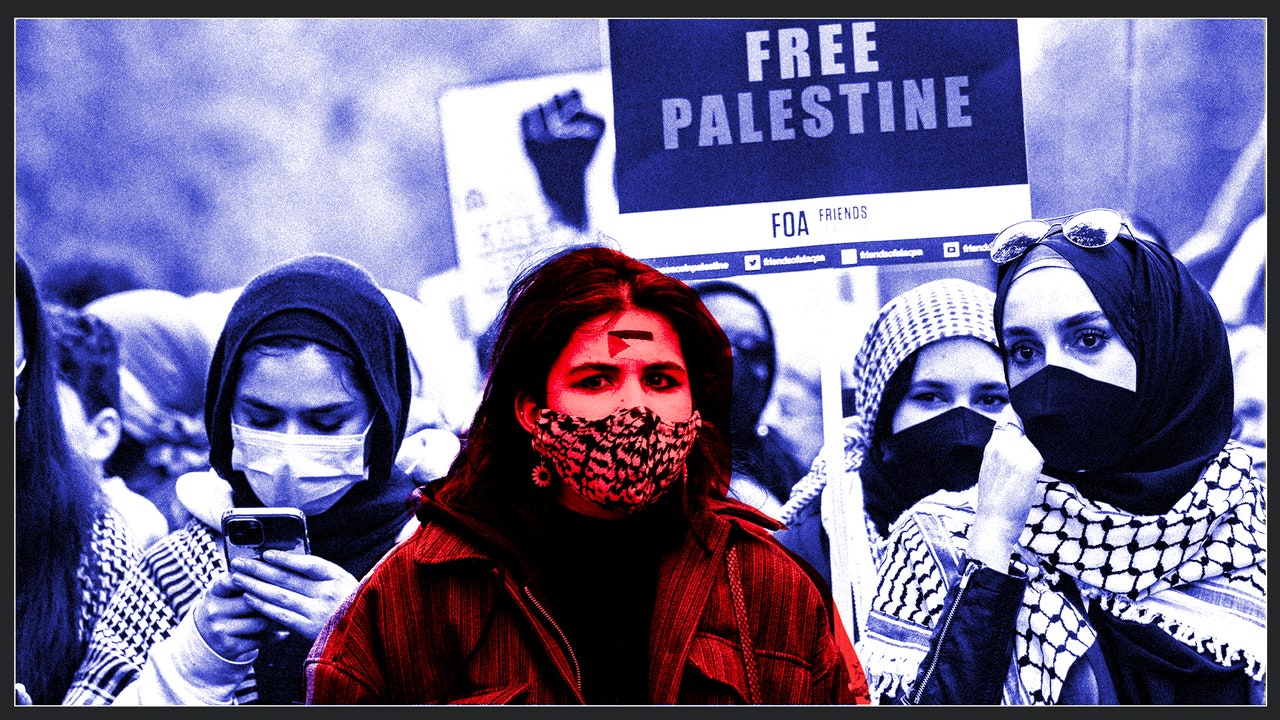Five
Admin at Slrpnk.net
Pronouns: they/he
The Five Filters of the Propaganda Model
Admins PM me for access to Fedi Admin Guild Loomio
- 402 Posts
- 280 Comments

 3·6 days ago
3·6 days agoHuffPost was founded by four people, including Arianna Huffington, CEO of Thrive Global, and Andrew Breitbart, who also built the alt-right outlet Breitbart News. Breitbart was also instrumental in founding The Drudge Report, an early popular news site that promoted news and opinion favorable to the Republican Party, and was The Huffington Post’s direct inspiration, with the focus instead on the Democratic party and ‘progressive’ values.

 1·13 days ago
1·13 days agoCNN is part of the Warner Bros. Discovery advertising portfolio.
MBFC classifies pro-Palestinian, anti-Israel, and anti-genocide bias in reporting as left-biased, but also classifies CNN as Left-Center biased. CNN staff say network’s pro-Israel slant amounts to ‘journalistic malpractice’.

 4·13 days ago
4·13 days agoABC News is a brand of Disney Advertising.
Manufacturing Consent has this to say about Disney news media:
Ben Bagdikian notes that when the first edition of his Media Monopoly was published in 1983, fifty giant firms dominated almost every mass medium; but just seven years later, in 1990, only twenty-three firms occupied the same commanding position.
Since 1990, a wave of massive deals and rapid globalization have left the media industries further centralized in nine transnational conglomerates-Disney, AOL Time Warner, Viacom (owner of CBS), News Corporation, Bertelsmann, General Electric (owner of NBC), Sony, AT&T-Liberty Media, and Vivendi Universal. These giants own all the world’s major film studios, TV networks, and music companies, and a sizable fraction of the most important cable channels, cable systems, magazines, major-market TV stations, and book publishers. The largest, the recently merged AOL Time Warner, has integrated the leading Internet portal into the traditional media system. Another fifteen firms round out the system, meaning that two dozen firms control nearly the entirety of media experienced by most U.S. citizens. Bagdikian concludes that “it is the overwhelming collective power of these firms, with their corporate interlocks and unified cultural and political values, that raises troubling questions about the individual’s role in the American democracy.”
Voice of America (VOA) is a state media network funded by the United States of America, whose purpose is to project soft power through journalism.
In 2005, the Washington Post reported that suspected Al-qaeda operatives were flown into Thailand to be detained and tortured. VOA’s remote relay radio station in Udon Thani province has been widely suspected to be the torture site.

 21·13 days ago
21·13 days agoManufacturing Consent has this to say about PBS:
Globalization, along with deregulation and national budgetary pressures, has also helped reduce the importance of noncommercial media in country after country. This has been especially important in Europe and Asia, where public broadcasting systems were dominant (in contrast with the United States and Latin America). The financial pressures on public broadcasters has forced them to shrink or emulate the commercial systems in fund~raising and programming, and some have been fully commercialized by policy change or privatization. The global balance of power has shifted decisively toward commercial systems.
James Ledbetter points out that in the United States, under incessant right-wing political pressure and financial stringency, “the 90s have seen a tidal wave of commercialism overtake public broadcasting,” with public broadcasters" rushing as fast as they can to merge their services with those offered by commercial networks." And in the process of what Ledbetter calls the “mailing” of public broadcasting, its already modest differences from the commercial networks have almost disappeared. Most important, in their programming “they share either the avoidance or the defanging of contemporary political controversy, the kind that would bring trouble from powerful patrons.”

 1·20 days ago
1·20 days agoThese structural factors that dominate media operations are not alI-controlling and do not always produce simple and homogeneous results… The beauty of the system, however, is that such dissent and inconvenient information are kept within bounds and at the margins, so that while their presence shows that the system is not monolithic, they are not large enough to interfere unduly with the domination of the official agenda.
–Edward S. Herman and Noam Chomsky, “Manufacturing Consent”

 6·20 days ago
6·20 days agoEl Pais is a brand of PRISA, an advertising and media conglomerate with headquarters in Madrid, Spain.

 1·20 days ago
1·20 days agoCNN is part of the Warner Bros. Discovery advertising portfolio. CNN staff say network’s pro-Israel slant amounts to ‘journalistic malpractice’.
Voice of America (VOA) is a state media network funded by the United States of America, whose purpose is to project soft power through journalism. In 2005, the Washington Post reported that suspected Al-qaeda operatives were flown into Thailand to be detained and tortured. VOA’s remote relay radio station in Udon Thani province has been widely suspected to be the torture site.

 1·24 days ago
1·24 days agoYeah, not a lot of discussion in the community :/

 1·24 days ago
1·24 days agoI can’t find !abc – I guess it overlaps with another community like !abolition so you can’t mouse-over it.

 4·30 days ago
4·30 days agoMBFC claiming CNN is Left-Center, when it is owned by conservative billionaire John Malone. This is an example of MBFC’s intentional distortion of the political spectrum by falsely representing it as dominated by a left-wing bias.
An example of CNN’s actual right-wing bias is when they put an obvious Trump Supporter on their recent panel of ‘undecided voters’. According to Parker Molloy from The New Republic, this isn’t “an isolated case of questionable representation in CNN’s voter panels. In fact, it appears to be part of a troubling pattern stretching back years.” She suggests it could be “a potential willingness to mislead viewers for the sake of compelling television.” - media ownership and their profit motive, and complicity of the media elite are sources of bias that MBFC does not adequately account for.
If you want to understand how propaganda works, learn the five filters of the propaganda model.

 11·30 days ago
11·30 days ago“Every life is precious, I learned that firsthand when I nearly experienced a post third-trimester abortion in Afghanistan.”

 2·1 month ago
2·1 month agoDo you unironically believe Martin Luther King Jr. wanted Barry Goldwater to win when he increased his civil rights protest organizing in defiance of Lyndon B Johnson during the lead up to the 1964 presidential election?

 7·1 month ago
7·1 month ago
[Image Description: Anakin Skywalker on Lava Planet, block-face text “If you’re not with me, then you’re my enemy”]
Fuck the Heritage Foundation.
Threads.net federation status on major Lemmy instances:
- Awful.systems - Blocked
- Beehaw.org - Blocked
- Blahaj.zone - Blocked
- DBZer0 - Blocked
- Dubvee.org - Blocked
- Eco.br - Blocked
- Feddit.org - Blocked
- Feddit.nl - Blocked
- Feddit.uk - Blocked
- Hexbear.net - Blocked
- JLai.lu - Blocked
- Leminal.space - Blocked
- Lemmy.best - Blocked
- Lemmy.ca - Blocked
- Lemm.ee - Blocked
- Lemmings.world - Blocked
- Lemmyf.uk - Blocked
- Lemmygrad.ml - Blocked
- Lemy.lol - Blocked
- Lemmy.ml - Blocked
- LemmyNSFW.com - Blocked
- Lemmy.one - Blocked
- Lemmy.zip - Blocked
- Literature.cafe - Blocked
- Mander.xyz - Blocked N
- Pawb.social - Blocked?
- Quokk.au - Blocked
- Reddthat - Blocked
- Sh.Itjust.works - Blocked
- SLRPNK.net - Blocked
- Szmer.info - Blocked
- Tchncs.de - Blocked
- Aggregatet.org - Not Found
- Aussie.zone - Not Found
- Feddit.cl - Not Found
- Feddit.it - Not Found
- Futurology.today - Not Found
- Infosec.pub - Not Found
- Lemmy.one - Not Found
- Lemmy.pt - Not Found
- Midwest.social - Not Found
- Monyet.cc - Not Found
- RBlind.com - Not Found
- SDF.org - Not Found
- Lemmy.world - Linked
- Sopuli.xyz - Linked
Also, in memoriam:

 3·1 month ago
3·1 month agoI really like this short video (4:43) that Amy Goodman, main host of Democracy Now!, narrated about why flak organizations like MBFC are dangerous to democracy.

 84·1 month ago
84·1 month agoYes, they are very nice to express solidarity with Vegans and VeganTheoryClub.
















I think David Van Zandt has a vendetta against Philip Weiss. Racists tend to be unfeeling or feel contempt for ‘lesser’ racial groups, and are merely indifferent to their suffering. The most intense ‘hate’ in hate groups comes from the intensity of feeling racists have toward other people of their own race they perceive as ‘race traitors’ - who demonstrate that people who share their culture and heritage can afford empathy for the ‘other’ whom racists believe are unworthy of concern.
Truthout is a reputable website, with good journalism and reporting. There’s a number of other websites that report favorably on Palestinians, and don’t toe Van Zandt’s line that criticism of Israel and antisemitism are the same thing. They have higher ‘Credibility’ and ‘Factual Reporting’ scores than Truthout. But Truthout occasionally rehosts reporting from Mondoweiss, a site that Van Zandt has labelled as ‘antisemitic,’ and therefore Truthout must be punished for giving support to the most notorious enemy of Israel – ‘self-hating’ Jews.